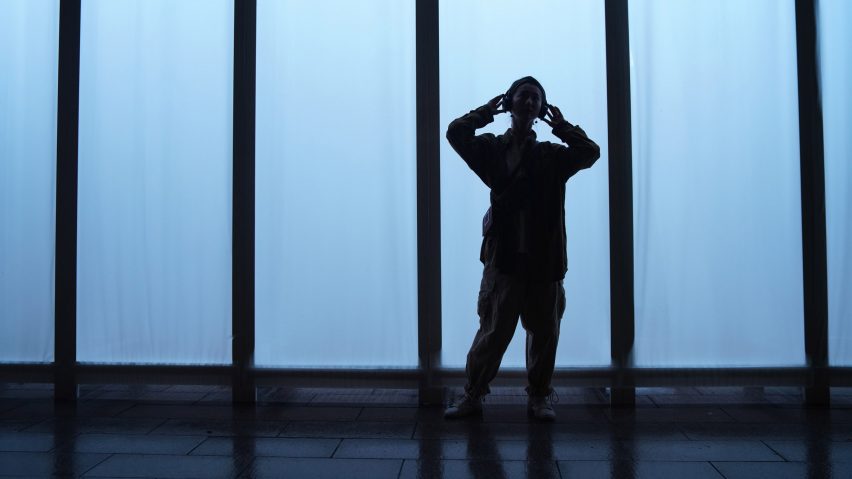This interactive pavilion, installed for Beijing Design Week 2018, is designed by architecture studio Superimpose to offer an oasis of calm in the centre of the capital.
Situated in a car park in the west of the city, Superimpose partnered with creative studio Shardisland to create the C02 pavilion and draw attention to air pollution in the city.
"Through a system of non-toxic theatrical steam machines, the CO2 Pavilion stands as playful reminder of the impact of uncontrolled consumption," explained the studio.
The temporary white-screened pavilion acts as a canvas for visual art and light projections, which incorporate the shadows and movements of visitors.
Visitors pass through an outer screen and are immediately faced by a second wall. This arrangement mimics the entrance of a hutong courtyard, where the street-facing wall shields a second interior wall. This transitional space is lit up at night, with the visitors moving within creating an interactive art work.
"The user is no longer in the city and not quite inside yet," said Superimpose.
"It gives you time to adjust before entering the inner courtyard, and then you reach a calm and peaceful space. Even though it's just in a car park, it's a special kind of space."
The pavilion is built around a tree, also typical of traditional Chinese architecture where the courtyard tree was used as connection to the natural world and a reminder of passing time as it changed through the seasons. It has no ceiling and is open to the sky.
By re-interpreting the courtyard shape, Superimpose are aiming to create a gathering space in a the modern urbanised setting.
"The CO2 Pavilion is trying to restore the missing sense of gathering and togetherness rooted in the traditional Chinese 'siheyuan' way of living," said Superimpose.
During the 10-day-long festival a series of talks and workshops were hosted in the pavilion, as well as a series of digital art projections that are paired with live music performances on the guzheng – a Chinese harp – and the piano.
The CO2 Pavilion was situated in the Chaoyang District of the city throughout Beijing Design Week 2018, which took place across multiple locations in the city from 24 September to 5 October.
Earlier this year Superimpose turned a Chinese revolutionary factory into exhibition centre in Changzhi, while in 2017 it made a ring-shaped pavilion in Hangzhou to teach city dwellers about farming.

